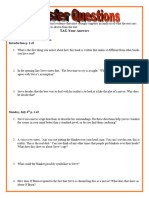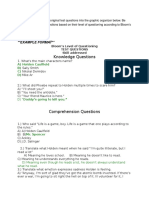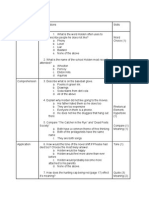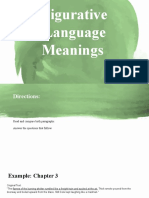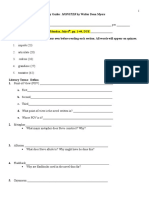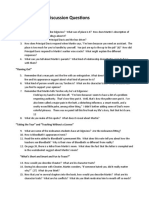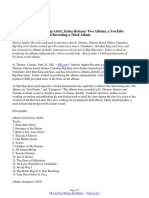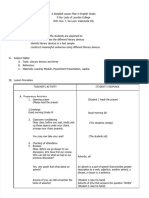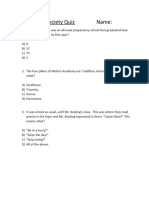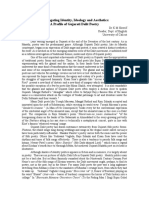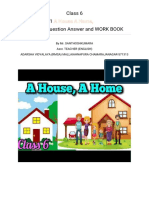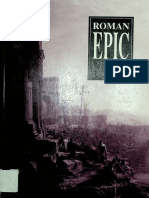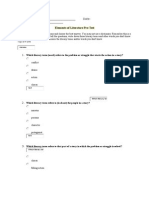Long Way Down Discussion Questions
1. Unlike a traditional prose novel, Long Way Down is written in verse. Poets are known for using language intentionally
and with precision, often choosing words with connotative and denotative meaning. Reflect on the significance of the
protagonist’s name. The word Will can be used as a proper name, but also as a verb and a noun. In what ways does the
protagonist encompass multiple meanings of his name?
2. What are “The Rules”? Do you agree that these three rules exist? If so, can you remember how you learned about them?
If not, are there other unspoken rules that you follow instead? What do you think Will means when he writes: “They
weren’t meant to be broken./They were meant for the broken/to follow.”
3. When we analyze poems, we pay attention to the poem’s format. This includes things like length, shape, line breaks
(including the use of enjambment and caesura) and spacing on the page. Identify a section of the novel where you think
the format adds meaning to a passage and explain how the poem’s format impacts the meaning.
4. Will enjoys finding anagrams, especially when the anagram illuminates or comments on the meaning of the original
word. Explain the connections between the anagrams that he creates. Why are they significant to the story?
5. When Shawn turned eighteen, what did his mother worry about? What do you think she meant in saying that when
Shawn walked in the nighttime, he needed to make sure that the nighttime wasn’t walking in him? Do you think Shawn
tried to heed his mother’s warning?
6. Will includes a list of nicknames for a gun. Are there any other nicknames that you know of that he did not include?
What are the different connotations of each name? When Will puts the gun in the back of his pants, what nickname does
he use for it? What does his choice suggest about his feelings toward carrying the gun?
7. Who does Will believe killed his brother? What are his reasons for believing this? Do you think he’s right?
�8. Throughout the novel, Will uses figurative language (simile, metaphor) to describe things or feelings. For example,
when he holds Shawn’s gun for the first time, he notes that it is, “Heavier than/I expected/like holding/a newborn.” In this
example, the juxtaposition of the image of a newborn baby with the weight of the gun highlights the deadliness of the gun
and loss of Will’s innocence. Find an example of figurative language that you think is especially effective and explain why
it is significant.
9. How does Will plan to avenge his brother’s death? In this moment, do you think he is doing the right thing?
10. When the first ghost enters the elevator, Reynolds includes a time stamp at the top of the page. How much time
elapsed between the first stop and the bottom floor? Why do you think Reynolds includes these indications of the passage
of time? Do they inform or complicate your understanding of the text?
11. How does Will recognize the first ghost that enters the elevator? What was the ghost’s relationship to Shawn and Will?
What message do you think he is trying to convey with his words and actions?
12. Why doesn’t Will recognize Dani at first? What questions does she have for Will? What message do you think she is
trying to share with him?
13. Frick is the only ghost to enter the elevator whom Will does not know. How is he related to the story? Why do you
think he visits Will?
14. The last person who enters the elevator is Shawn. What does Will tell his brother? How does Shawn respond? What
rule do both brothers break? Do you think Shawn wants Will to avenge his death by shooting Riggs? Explain your answer.
�15. The last words in the book are a question. How do you think Will answers this question? Where do you think Will will
be five years after the end of the book?



















